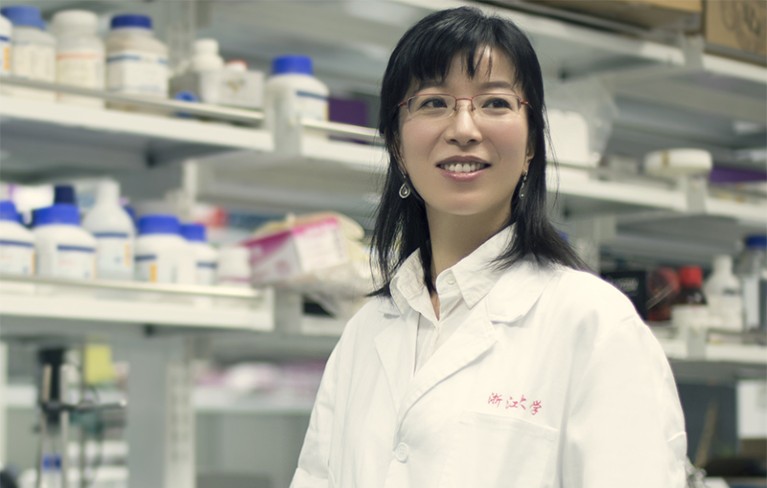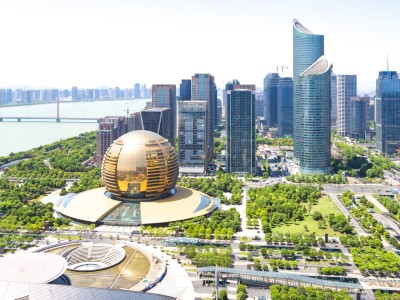
Hailan HuCredit: TongMengStudio
Neuroscientist Hailan Hu moved back to her home town to capitalize on its vibrant science environment. She researches depression at Zhejiang University School of Medicine in Hangzhou.
Why did you return to Hangzhou?
The medical school has a supportive and nurturing environment where I could grow. Being close to family and friends is a plus.
What were you doing before that?
After graduating from Peking University in Beijing , I did a PhD at the University of California, Berkeley, followed by a postdoc at Cold Spring Harbor Laboratory in New York. I joined the Chinese Academy of Sciences Institute of Neuroscience in Shanghai in 2008.
What do you like about Zhejiang University?
We foster a strong culture of interdisciplinary research. My own lab collaborates with engineering, computer science, pharmacology and chemistry teams. Zhejiang University has several affiliated hospitals that provide a good platform for translational medical research, and it has a reputation for a strong entrepreneurial spirit.
Tell us about your team and current research.
It’s an entirely Chinese team right now, but I’m considering taking on foreign students as we grow. In 2016, we discovered how the anaesthetic ketamine blocks electrical bursts from a region of the brain and relieves the symptoms of severe depression. We’re talking to scientists and clinicians worldwide about translating the research into antidepressants.
Are you planning new collaborations abroad?
Our neuroscience centre is going to establish a programme with the University of Toronto in Canada, for students and postdocs to work overseas. We have formal collaborations with the University of California, Los Angeles, Columbia University in New York City and the University of Melbourne in Australia.
How has Hangzhou changed since you left?
Hangzhou was China’s top honeymoon destination. Now, it is still beautiful, but its tourism-based economy has transformed. The atmosphere is modern and international. It feels different. I almost never take my wallet out; I pay using my mobile phone.
Are you surprised by the transformation?
Change was always a part of life here. There’s a saying: the three big eastern economies, Beijing, Shanghai and Zhejiang, have different business models. Beijing has the government-owned businesses, Shanghai favours foreign companies and big brands and Zhejiang cultivates entrepreneurship.
What practical benefits do you find China has?
I perhaps spend less time writing grants compared with my peers in the United States.
What advances do you hope to see in the Chinese research environment in the future?
As basic research booms and more graduate students and postdocs are doing outstanding work in China, I hope we can provide equal support to those trained at home and abroad. At present, some career-development grants are designed for Chinese scientists who have studied and worked abroad. Now is the time to extend these schemes to all qualified young trainees.
What attracts young scientists to Zhejiang?
With its nice environment and low cost of living, I think Zhejiang has become as attractive to researchers as Beijing or Shanghai, if not more so. The opportunities are growing.


 China’s Zhejiang province is open for science business
China’s Zhejiang province is open for science business
 Career guide: China
Career guide: China
 How private-sector research is changing China
How private-sector research is changing China
 China declared world’s largest producer of scientific articles
China declared world’s largest producer of scientific articles








